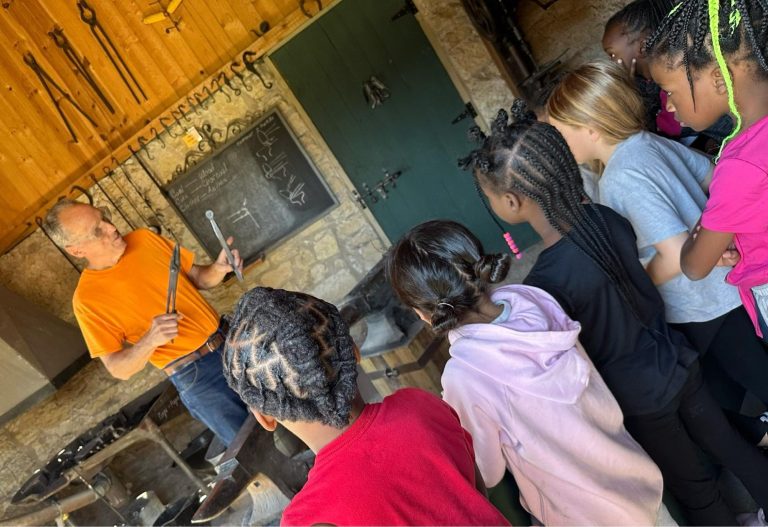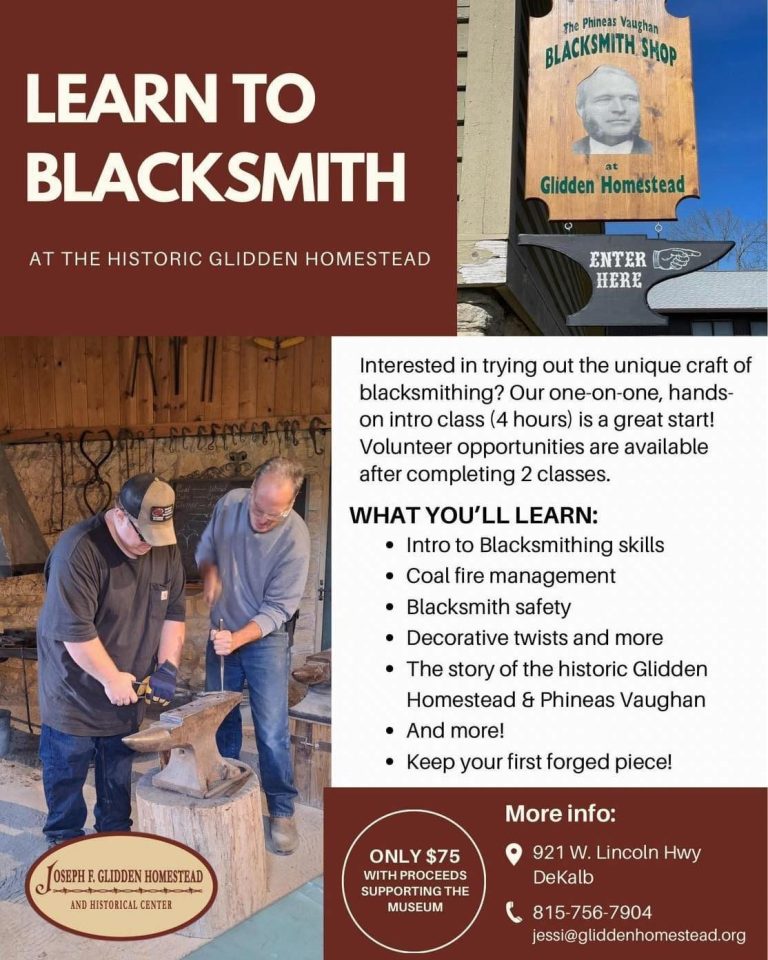The Blacksmith Shop

From Mill House to
Blacksmith Shop
Phineas
DeKalb blacksmith Phineas W. Vaughan (1827-1897) played a pivotal role in helping his friend Joseph F. Glidden invent “The Winner,” one of the most-widely used types of barbed wire. Ultimately, he and Glidden would patent a machine for making barbed wire.
The site of Vaughan’s original blacksmith shop on the north side of Lincoln Highway between Third and Fourth Streets in downtown DeKalb is marked with a horseshoe embedded in the concrete sidewalk. Local historians believe it is an original horseshoe from Vaughan’s shop.
On Sundays when the Homestead is open, volunteer blacksmiths demonstrate the old-time trade as they shape hot iron with ultimate patience into useful tools and household items. The clanging of hammer against iron and the glowing of the embers in the forge transport visitors back in time—to the era when the blacksmith was one of the most important tradesmen in the village, and Phineas Vaughan helped Joseph Glidden turn an ordinary coffee grinder into a revolutionary barbed-wire maker.
Under the direction of head blacksmith Martin O'Connor, the shop is open to both experienced blacksmiths and those who would like to learn the craft and become volunteers. Pieces hand-forged by Homestead blacksmiths are available to purchase in the Gift Shop and support museum operations.
The building housing the Phineas Vaughan Blacksmith Shop at the Glidden Homestead was originally a mill house on Glidden’s farm, so-called because of the windmill sitting atop the two-story structure. Besides providing the water source for the farm, it may have been where the farm hands slept. When central heat was installed in the home in 1909, the mill house housed the furnace and heating pipes ran through a backyard tunnel on the west side of the mill house into the home. The wooden portions of the building had long been deteriorated when the Homestead organization took over the property, with only the foundation remaining.
In 2010, after three years of intense volunteer labor, the restored building opened as a blacksmith shop, the first living-history element at the Homestead. The Phineas Vaughan Blacksmith Shop pays tribute to the contribution the DeKalb blacksmith played in helping Joseph Glidden develop the equipment he needed to manufacture barbed wire. Funding for restoration was provided by grants from the Illinois Department of Commerce and Economic Opportunity’s Department of Tourism and the DeKalb County Community Foundation. Work included tuck pointing the stone foundation, a new roof and siding, a concrete floor, and grading and reseeding the grounds.



